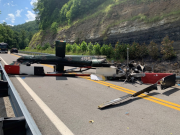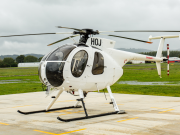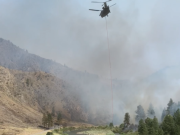Six months into 2019, the U.S. helicopter industry has experienced 15 fatal accidents — a number that places the industry on track to record 30 to 35 fatal accidents before the year ends, the U.S. Helicopter Safety Team (USHST) says.
In a statement released Wednesday, USHST said this year’s 15 fatal accidents have resulted in 27 fatalities.
“This is on track to match 2013, when 30 fatal accidents occurred,” USHST said. “However, since July is usually a month with a high number of accidents, the industry also is at risk to reach the total from 2008, when there were 35 fatal helicopter accidents.”
To avoid what USHST called an “unwelcome record,” the organization called on pilots, flight instructors and others in the industry to focus on key accident-prevention actions, including carrying enough fuel not only for the planned flight but also for unexpected diversions and delays.
Other recommended actions called for conducting an adequate preflight inspection, including use of a checklist and a final walk-around; recognizing the sedating effects of some over-the-counter medications; ending “scud running” — flying too low beneath clouds; and avoiding flight under visual flight rules in instrument meteorological conditions.
Also on USHST’s list were avoiding “get-there-itis” — fixating on the original destination and disregarding potential obstacles and alternative courses of action; and being willing to divert, turn around or land if weather conditions preclude completing the flight as planned.



